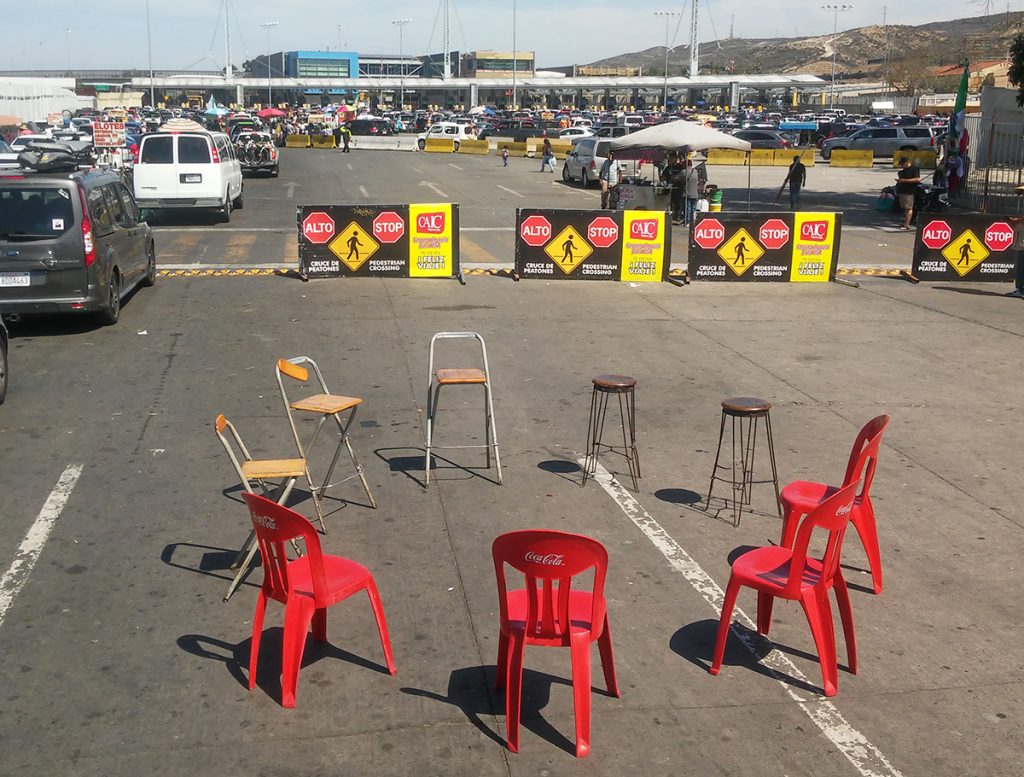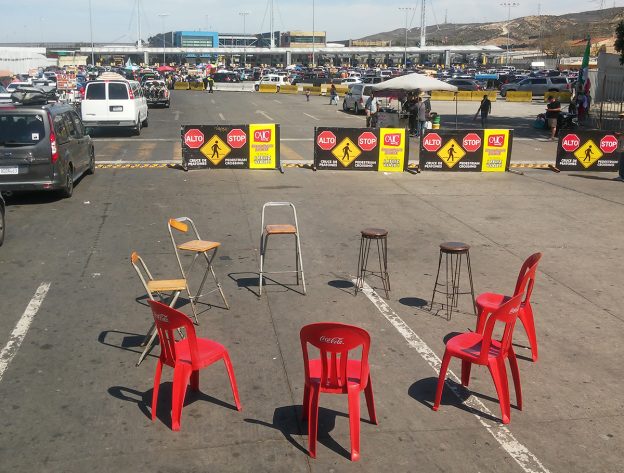
Poetry & Conversation
Poesía & Conversación
A – Z (Armendinger – Zelko)
Tuesday/Martes 9 de abril/April, 7:30pm
Avenue 50 Studio
Dani Zelko from Buenos Aires and Brent Armendinger from Los Angeles present public poetry experiments that redefine poetic practice as social space.
Dani Zelko de Buenos Aires y Brent Armendinger de Los Ángeles presentan experimenos en la poesía pública que redefinen la práctica poetica como espacio social.
____________________________________
Share dessert, drinks, and conversation—bring something to share or just bring yourself.
Comparte postres, bebidas y conversación—lleva algo para compartir o solamente llévate a ti mismx.
This event will be bilingual, with Spanish-English interpretation.
Este evento será bilingüe, con interpretación entre inglés y español.
Childcare provided upon request; please email your request to jenhofer@gmail.com by 9pm on Sunday, April 7.
Se proporciona cuidado infantil, bajo solicitud; por favor mánda tu solicitud a jenhofer@gmail.com antes de las 9pm el domingo 7 de abril.
____________________________________
Walking through cities, towns, border crossings and rural communities of Mexico, the United States and Canada, I ran into people that had to flee from the Global South and look for a new life in North America. I invited them to write a few poems. They spoke to me and I wrote down everything they said by hand. Each time they inhaled I started a new line. Nothing was recorded. We printed their books that day. The next day, when the circumstances allowed it, each person read their poems aloud in a round of nine chairs and gave the books to everyone who came to listen. In the beginning, during a get-together, spoken word becomes written word. In the end, poems occasion a gathering where the written word becomes oral. Poems are at last between two people instead of two pages.
“Migrants are being constructed as political enemies” “Migrants are being incorporated into the discourse of war” “What’s new is not migratory movements, what’s new is this global regime of borders, this neoliberal fantasy of trying to govern human mobility” “Why can’t we understand that migration is the aftermath of colonialism and slavery?” “Migration is the very dispute of what we call borders!” “Migrant caravans are an uprising! A rebellion!” “The act that migrants are carrying out puts an end to an era, it invents a new historical and political moment” “To migrate is pure will of life” “All living beings move to where there is water, food, and light” “To migrate is to begin a new story for your life.”
https://danizelko.com/North-Border
https://bit.ly/rnorthborder
https://bit.ly/rfronteranorte
Dani Zelko (Argentina, 1990) is a poet and an artist. His project Reunion: North Border brings together poems written by migrants at the borders in Mexico, US and Canada. Dani’s work channels the circulation of words and stories not only as a way to tell experiences occluded by the media, but also to create community, shared spaces, voices, encounters, reunions. More than writing books, Dani’s work is about reinventing the “in-between” in which alternatives to the current situation can be created.
Caminando por ciudades, pueblos y comunidades rurales de México, Estados Unidos y Canadá, me encontré con personas que tuvieron que escaparse de sus países del Sur Global y buscan una nueva vida en Norteamérica. Los invité a escribir unos poemas. Me hablaron y escribí a mano todo lo que dijeron. Cada vez que inhalaron, pasé a la línea que sigue. Ningún encuentro se grabó. Imprimimos sus libros en el momento. Cuando la circunstancia lo permitió hicimos una presentación: cada persona leyó sus poemas en voz alta en una ronda de nueve sillas y le regaló sus libros a quienes se acercaron a escuchar. Al principio, en un encuentro, la palabra hablada se transforma en palabra escrita. Al final, la palabra escrita hace posible un encuentro que se vuelve palabra oral. Los poemas contentos: están entre dos personas y no entre dos hojas.
“Los migrantes están siendo construidos como enemigos políticos” “Los migrantes están siendo incorporados al discurso de la guerra” “Lo nuevo no son las migraciones, lo nuevo es este régimen global de fronteras, esta fantasía neoliberal de gobernar la movilidad humana” “¿Por qué no podemos entender que la inmigración es la secuela del colonialismo y la esclavitud?” “¡La migración es la disputa misma de a qué le llamamos frontera!” “¡Las caravanas migrantes son un levantamiento, una rebelión!” “¡El acto que están haciendo los migrantes termina con una era, inventa un nuevo momento histórico y político!” “Migrar es pura voluntad de vida” “Todos los seres vivos se mueven a donde hay agua, sombra, comida” “Migrar es inaugurar un nuevo relato para tu propia vida”.
Dani Zelko (Argentina, 1990) es poeta y artista. Su proyecto Reunión: Frontera Norte junta poemas escritos por migrantes en las fronteras en México, EEUU y Canadá. La obra de Dani canaliza la circulación de las palabras e historias no solamente como manera de contar experiencias ocultas por los medios, sino también para crear comunidad y espacios, voces, encuentros, reuniones compartidos. Más que escribir libros, la obra de Dani se trata de reinventar el “entre” en el que se pueden crear alternativas a la situación actual.
____________________________________
In Street Gloss, Brent Armendinger follows the work of five Argentinian poets into the streets of Buenos Aires, attempting to map the ways a word might be an echo of the city itself. Interested in the surface areas of language and the generative potential of failure in translation, he follows a set of procedures oriented simultaneously in the lines as well as the streets of the city, gathering impressions, associations, and language through unpredictable encounters with the place and its inhabitants.
En Street Gloss, Brent Armendinger sigue el trabajo de cinco poetas Argentinxs a las calles de Buenos Aires, en un intento de trazar en el mapa cómo una palabra podría ser eco de la ciudad misma. Con interés en las superficies del lenguaje y el potencial generative de los fracasos en la traducción, sigue un conjunto de procesos orientados simultaneamente en las líneas al igual que las calles de la ciudad, recogiendo impresiones, asociaciones y lenguaje a través de encuentros impredecibles con el lugar y sus habitantes.
Brent Armendinger is the author of The Ghost in Us Was Multiplying (Noemi Press, 2015), a finalist for the California Book Award in Poetry, and two chapbooks, Undetectable (New Michigan Press, 2009) and Archipelago (Noemi Press, 2009). In July 2019, The Operating System will publish Street Gloss, an experimental translation project, featuring the work of Alejandro Méndez, Mercedes Roffé, Fabián Casas, Néstor Perlongher, and Diana Bellessi. He has been awarded residencies at Blue Mountain Center and Headlands Center for the Arts. Brent teaches creative writing at Pitzer College and lives in Los Angeles.
Brent Armendinger es autor de The Ghost in Us Was Multiplying (Noemi Press, 2015), finalista para el premio California Book Award en poesía, y dos plaquettes, Undetectable (New Michigan Press, 2009) y Archipelago (Noemi Press, 2009). En Julio de 2019, The Operating System publicará Street Gloss, un proyecto de traducción experimental, con enfoque en la obra de Alejandro Méndez, Mercedes Roffé, Fabián Casas, Néstor Perlongher, y Diana Bellessi. Ha sido premiado con residencias en Blue Mountain Center y Headlands Center for the Arts. Brent da clases de creación literaria en Pitzer College y vive en Los Ángeles.

